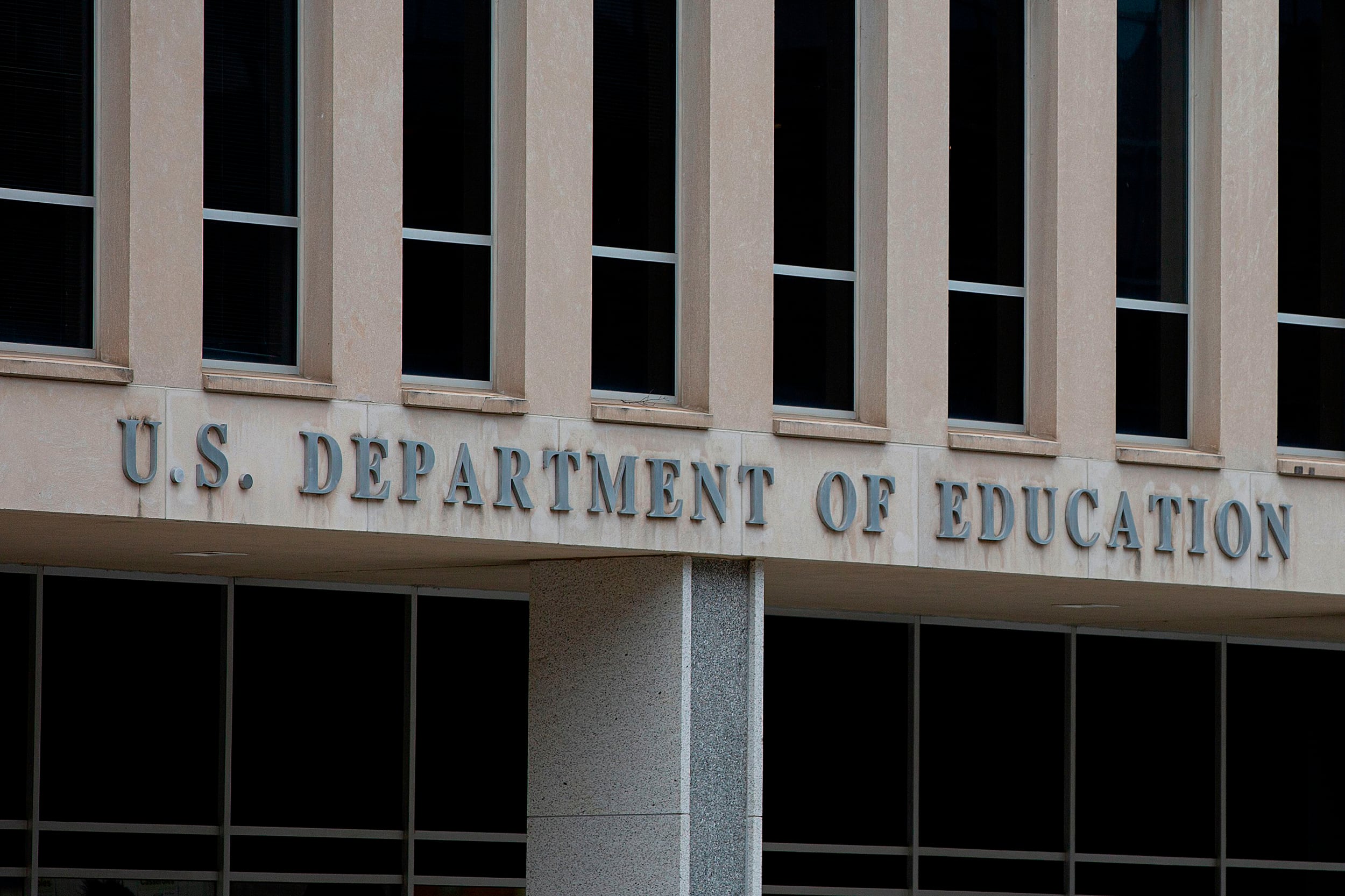Sign up for Chalkbeat’s free weekly newsletter to keep up with how education is changing across the U.S.
Schools can facilitate frank discussions about race and racism, but likely cannot create groups that exclude people because of their race — even if done with the stated purpose of combating racism — according to new federal guidance.
The document, which the U.S. Department of Education issued Thursday, comes at a time when schools across the country are wrestling with how to manage various issues related to race — from how to help students write college admissions essays to how to facilitate discussions about race and racism in class.
The guidance, which was praised by a coalition of civil rights groups, is the Biden administration’s latest attempt to provide clarity on what is and isn’t allowed. It suggests that common practices employed by schools — curriculum that explores race, efforts to support specific groups experiencing racism — are permitted. But it also indicates that race-exclusive groups, an approach that has been employed in some schools, would trigger a civil rights investigation.
Written as a letter to school officials from the department’s Office for Civil Rights, the guidance does not hold the force of law. But it does suggest how the current administration would approach legal questions, and such guidance is often closely watched by school officials.
“This resource aims to assist our nation’s schools to fulfill Congress’ longstanding promise that no student experience discrimination based on race,” said Assistant Secretary for Civil Rights Catherine Lhamon in a statement.
The guidance explains what would and wouldn’t trigger a civil rights investigation under Title VI of the 1964 Civil Rights Act, which bars discrimination based on race and national origin. The letter runs through a number of hypothetical examples to illustrate the department’s approach.
For instance, the document explains that a “program that requires all students to read a book about race discrimination and racial justice” would be perfectly fine. So would a requirement that all students take a Mexican American history course, the guidance says. That’s because neither instance singles out students because of their race.
On the other hand, the Office of Civil Rights would open an investigation into a school district if, after high-profile police shootings, officials created an assembly for “Black students in order to provide a forum for them to express their frustrations, fears, and concerns” — and excluded white students from the assembly.
The Department would also investigate a class where “students of different races read different materials based on their race … and participate in different discussion groups based on their race.” The investigation would proceed even if the instructor justified the practice by saying that “students often feel more comfortable reading works by authors of their own race.”
An investigation on its own does not indicate that such a practice is illegal. But school officials would have to justify such race-conscious policies by showing that they further a “compelling interest” and are “narrowly tailored.” This is an exacting standard that officials would have a hard time meeting, especially in light of Supreme Court precedent, including the recent ruling barring race-based affirmative action in college admissions.
Some school districts across the country have reportedly created “affinity” groups that are limited to students or teachers of certain races, which have in some cases triggered civil rights complaints by conservative groups. The guidance suggests that the Biden administration will look skeptically on such practices insofar as they limit participation to people of specific races.
Still, the guidance offers a number of other examples that would not run afoul of civil rights law.
A school could, for instance, support an Asian American students’ group that created an event that offered a “safe space for students to discuss hate incidents against Asian students” — so long as such an event does not exclude any student based on their race.
Similarly, a school could sponsor a “National Black Parents Involvement Day.” It could also host focus groups and support groups focusing on Black students and parents.
“While the groups and event expressly limit their agendas and focus to Black students and/or parents, none of the groups or events exclude or limit individuals’ participation based on race,” the guidance explains.
The letter, signed by Lhamon, notes “that many schools, colleges, and universities offer spaces and activities for students … in order to cultivate inclusive communities that feel welcoming to students from populations that have traditionally been underserved.” These efforts are allowed so long as they “are open to all students regardless of race,” Lhamon concludes.
Matt Barnum is interim national editor, overseeing and contributing to Chalkbeat’s coverage of national education issues. Contact him at mbarnum@chalkbeat.org.





